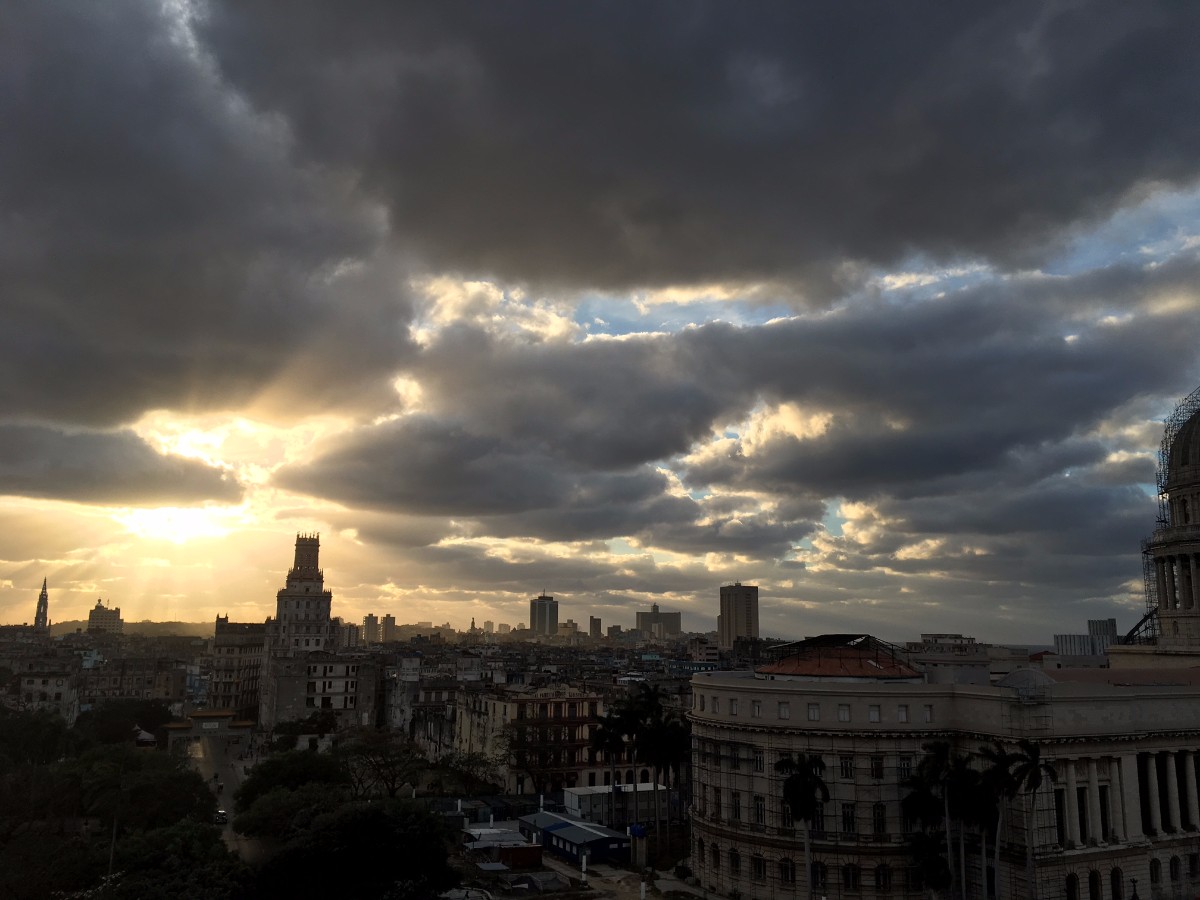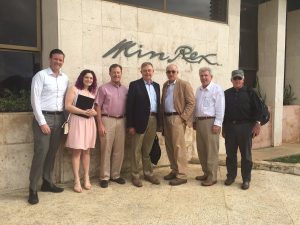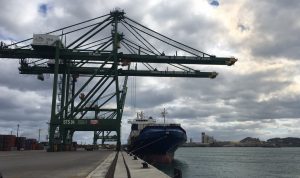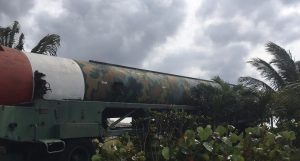
Inaction on Cuba Harms American Interests
Russia, China, and Venezuela benefit from American delay on Cuba
Two and a half years ago, the United States and Cuba agreed to put the shared history of the past five decades behind them.On December 17, 2014, the two countries agreed to a framework of action that would result in the resumption of formal diplomatic relations, re-establishment of direct travel connections, and an easing of barriers to trade. Today, however, that process of normalization remains incomplete. In Politico, the American Security Project’s General Eaton and General McGinnis write about “Trump’s Critical Cuba Policy Decision.” As they write, as the Trump Administration undergoes a formal review of American policy towards Cuba, all contact has been halted.

ASP’s Delegation to Cuba
I visited Havana as a part of an American Security Project delegation in March. The trip’s goal was to gain insight into U.S.-Cuban relations and build confidence between our countries. We saw a country that was ready to move to the future, but was still stuck in place: by forces both within their control and for outside.
What is clear, though, is that our geopolitical rivals are not waiting. In as clear a sign as will ever come in global geopolitics and economics, a Russian tanker is arrived on May 10, after Russia’s Rosneft signed a secretive deal with the Cuban government to provide oil. Likewise, China is increasing its influence in Cuba as a challenge to American economic clout in Latin America. Meanwhile, Venezuela, the longtime leader of opposition to the U.S. in Latin America, is spiraling into chaos – and looking to Cuba for the support it needs to remain in power.
For Cuba, the reopening to the United States was as much about economics as about politics. The Cuban economy was losing its patron, Venezuela; for over a decade, Venezuela’s Hugo Chavez had thrown the Cuban economy a lifeline of subsidized oil as sign of “Bolivarian Solidarity.” But, by 2014 Chavez was dead and that lifeline was threatened as Venezuela’s economy spiraled downward. In an effort to earn hard currency, Cuba looked to American tourism dollars to replace its oil revenues. So far, tourism has indeed jumped, with record numbers of Americans and Europeans visiting on cruises, staying in AirBnB “Casas Particulares” and boosting the booming local hotel industry.
However, the jump in tourism was not enough to offset the loss of Venezuelan oil; Cuba experienced an economic recession 2016.
China Invests Strategically in Cuba

New Chinese-Built Cranes at the Port of Mariel
Of America’s three geopolitical rivals in Cuba, China is the most commercial: for Beijing, politics and economics are linked. China is now the top source of imports to Cuba and the largest buyer of Cuban exports. And, although Chinese businesses lag behind Canadian, Spanish, and other nations as the source of Foreign Direct Investment into Cuba, the Chinese government is the largest holder of Cuban government debt. Within Cuba, the scale of Chinese commercial interests is apparent: it appears every modern car on the road is Chinese-made (the old ones, of course, are distinctly American).
The Chinese-Cuban economic relationship has clear political implications within Cuba: the Chinese telecommunications giant Huawei has partnered with the Cuban government to provide internet service in Cuba; a high priority for the people of Cuba. While this is an important step towards bringing Cuba online, it also brings concern that the Cuban government is attempting to emulate the Chinese model of a firewalled internet that is censored by the government.
Russia’s Military Engagement with Cuba

Soviet-era Ballistic Missile – a reminder of the last time Russia was involved in Cuba
More worryingly, the Russians have returned to Cuba with the first major oil deal since the end of the Cold War. While Russia’s recent economic struggles mean that it will never be the commercial power in Latin America that China is, Russia does have two things in surplus: military power and oil. In December 2016, Cuba and Russia signed a defense deal to help modernize Cuba’s armed forces. The Russian military has even discussed re-opening military bases in Cuba.
Venezuela’s Maduro Needs Cuba’s Support to Survive
For Venezuela’s government, the stakes are even higher: its very existence may hinge upon its relationship with Cuba. The Venezuelan military and intelligence structure was created by the Castro government at the request of Hugo Chavez. There are reports that thousands of Cuban advisers are embedded within the leadership of Venezuelan military units, in the Ministries of Interior and Justice, and within the Directorate of Intelligence. It is not an exaggeration to say that the Cuban government’s support for Maduro is essential to his power. That means that any efforts to ease him from power and restore order in Venezuela’s streets must start in Havana.
The U.S. Must Not Abandon Cuba to our Adversaries
The United States does not have to give up its influence only 90 miles off our coast. We don’t have to cede our “Third Border” to our adversaries. On the contrary, the Cubans have expressed a strong desire to move closer to the United States: they want trade, investment, and travel. They are willing to negotiate the terms of a fully normalized political and economic relationship – including negotiations on human rights and expropriated assets.
Even the beginnings of negotiations would send a signal to our adversaries that we intend to remain the most important power in our hemisphere. We can sell oil to Cuba from Houston cheaper than they can ship it from Russia. Allowing Americans to invest in Cuba would provide the competition to ensure that Chinese investment remains commercial in nature. Direct political engagement with Havana could solve the crisis in Venezuela before it becomes a humanitarian disaster, pushing refugees to our borders.
The Trump Administration can re-shape our relationship with all Latin America – and that path goes through Havana. America cannot afford to back track on the opening to Cuba. We must put “America First” in our hemisphere. It is time to re-start the relationship with Cuba.





